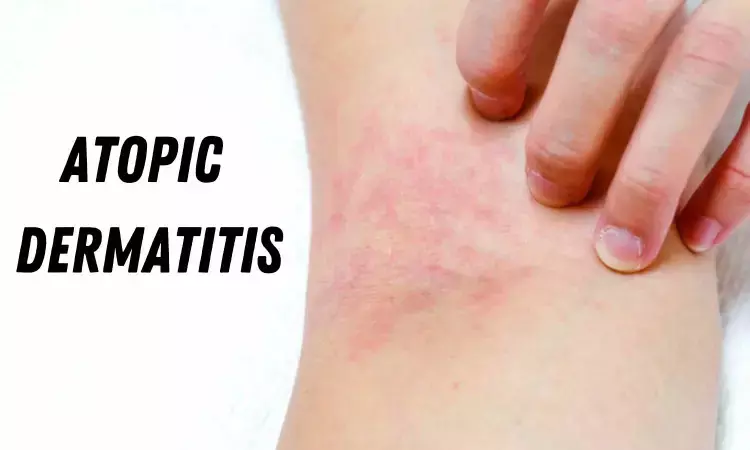- Home
- Medical news & Guidelines
- Anesthesiology
- Cardiology and CTVS
- Critical Care
- Dentistry
- Dermatology
- Diabetes and Endocrinology
- ENT
- Gastroenterology
- Medicine
- Nephrology
- Neurology
- Obstretics-Gynaecology
- Oncology
- Ophthalmology
- Orthopaedics
- Pediatrics-Neonatology
- Psychiatry
- Pulmonology
- Radiology
- Surgery
- Urology
- Laboratory Medicine
- Diet
- Nursing
- Paramedical
- Physiotherapy
- Health news
- Fact Check
- Bone Health Fact Check
- Brain Health Fact Check
- Cancer Related Fact Check
- Child Care Fact Check
- Dental and oral health fact check
- Diabetes and metabolic health fact check
- Diet and Nutrition Fact Check
- Eye and ENT Care Fact Check
- Fitness fact check
- Gut health fact check
- Heart health fact check
- Kidney health fact check
- Medical education fact check
- Men's health fact check
- Respiratory fact check
- Skin and hair care fact check
- Vaccine and Immunization fact check
- Women's health fact check
- AYUSH
- State News
- Andaman and Nicobar Islands
- Andhra Pradesh
- Arunachal Pradesh
- Assam
- Bihar
- Chandigarh
- Chattisgarh
- Dadra and Nagar Haveli
- Daman and Diu
- Delhi
- Goa
- Gujarat
- Haryana
- Himachal Pradesh
- Jammu & Kashmir
- Jharkhand
- Karnataka
- Kerala
- Ladakh
- Lakshadweep
- Madhya Pradesh
- Maharashtra
- Manipur
- Meghalaya
- Mizoram
- Nagaland
- Odisha
- Puducherry
- Punjab
- Rajasthan
- Sikkim
- Tamil Nadu
- Telangana
- Tripura
- Uttar Pradesh
- Uttrakhand
- West Bengal
- Medical Education
- Industry
Lebrikizumab promising maintenance therapy for atopic dermatitis

USA: A recent study has shown promising results for lebrikizumab in the maintenance treatment of moderate-to-severe atopic dermatitis (AD).
The study, presented as new late-breaking data at the 25th Annual World Congress of Dermatology (WCD) revealed that atopic dermatitis patients treated every 2 and 4 weeks maintained a similar response with or without corticosteroids.
Lebrikizumab works as a novel, high-affinity IgG4 monoclonal antibody which inhibits IL-13 signalling to address atopic dermatitis.
The study first involved two trials ADvocate1 and ADvocate2 which assessed induction and maintenance treatment with lebrikizumab monotherapy in moderate-to-severe AD patients.
ADhere, the third trial assessed induction treatment with lebrikizumab in combination with topical corticosteroids. Participants who had completed ADhere also were given the chance to roll over into a long-term extension study, ADjoin.
ADjoin study was performed to assess the maintenance of both safety and efficacy in those who were able to achieve an Eczema Area and Severity Index (EASI-75) response or an Investigator's Global Assessment (IGA) score of 0/1 after 16 weeks of lebrikizumab treatment with and without rescue therapy.
The authors reported the following findings:
- Adjoin’s results indicated that the majority of patients treated with lebrikizumab every 2 weeks and every 4 weeks in ADvocate1 and ADvocate2 maintained an IGA 0/1 response at 52 weeks, with response rates of 71.2% for the 2-week group and 76.9% for the 4-week group.
- In ADjoin, most participants given lebrikizumab plus topical corticosteroids for 2 weeks and 4 weeks maintained IGA 0/1 response at 40 weeks, with response rates of 75.4% for the 2-week group and 86.8% for the 4-week group.
- Regarding the EASI-75 response, the study revealed that most patients treated with lebrikizumab Q2W and Q4W in ADvocate1 and ADvocate2 maintained their response at Week 52, with response rates of 78.4% for the 2-week group and 81.7% for the 4-week group.
- In ADjoin, patients treated with lebrikizumab plus TCS Q2W and Q4W maintained an EASI-75 response at Week 40, with response rates of 85.6% for Q2W and 81.2% for Q4W.
The researchers also noted that the majority of participants treated with lebrikizumab were also shown to have maintained an EASI-90 response across each of the studies.
Furthermore, the research team found the safety results to be consistent with prior data, suggesting a favourable safety profile for lebrikizumab in the maintenance treatment of the skin condition.
References:
1) Guttman-Yassky E, Weidinger S, Simpson E, et al. Maintenance of efficacy and safety with lebrikizumab up to one year of treatment in patients with moderate-to-severe atopic dermatitis with or without topical corticosteroids. 25th Annual World Congress of Dermatology (WCD). July 2, 2023.
2) Blauvelt A, Thyssen JP, Guttman-Yassky E, et al. Efficacy and safety of lebrikizumab in moderate-to-severe atopic dermatitis: 52-week results of two randomized double-blinded placebo-controlled phase III trials. Br J Dermatol. 2023;188(6):740-748. doi:10.1093/bjd/ljad022.
Dr Kamal Kant Kohli-MBBS, DTCD- a chest specialist with more than 30 years of practice and a flair for writing clinical articles, Dr Kamal Kant Kohli joined Medical Dialogues as a Chief Editor of Medical News. Besides writing articles, as an editor, he proofreads and verifies all the medical content published on Medical Dialogues including those coming from journals, studies,medical conferences,guidelines etc. Email: drkohli@medicaldialogues.in. Contact no. 011-43720751


